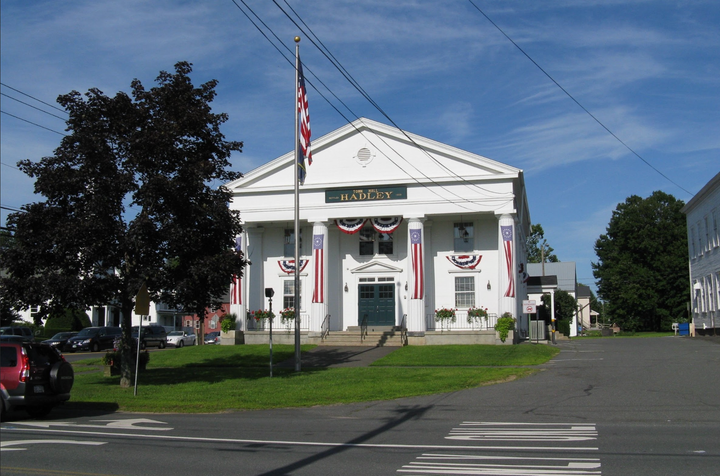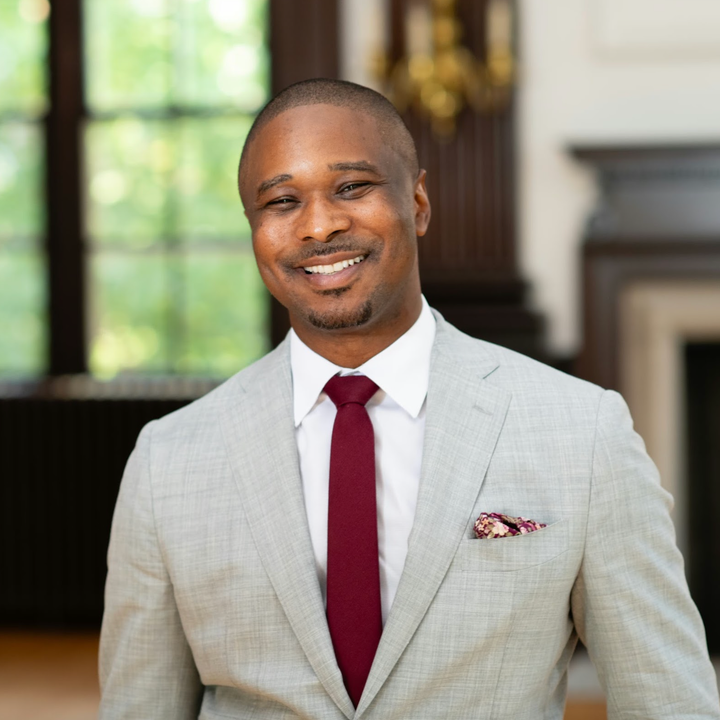Interdisciplinary Artist Discusses Integrating Art and Science
Artist Janani Balasubramanian spoke to a group of students and staff about their work crafting large-scale, immersive exhibitions that integrate art and science on Thursday, May 4.
On Thursday, May 4, artist and researcher Janani Balasubramanian spoke to a group of students and staff about their work crafting large-scale, immersive exhibitions that integrate art and science in an event titled “Waking Sleeping Metaphors in Science.”
Balasubramanian’s artistic practice spans mediums from murals, to architecture, to poetry, and involves collaboration with scientists across disciplines as diverse as physics and environmental science.
Balasubramanian shared two of their projects during the talk.
The first, titled “The Gift,” is a collaboration with Colorado College astrophysicist Natalie Gosnell that began in 2018 at the University of Colorado. The concept is an immersive experience where visitors enter and simultaneously look over a large illustrated book. A musical score accompanies them as they read. The book tells the story of two stars and the transfer of matter between them, a phenomenon that Gosnell studies.
“Their fates are intertwined; one star, at the end of its life, transfers its material to the companion, allowing the companion to burn brighter and to appear — for a moment — younger, brighter, bluer,” Balasubramanian said.
Balasubramanian said that they were led to involve science in their artwork simply by instinct. Similarly, they spoke to the way their artistic impulses demand multimedia expression. “Every idea can’t be held in the same container,” they explained.
The experience of “The Gift” is available across multiple languages depending on the visitors, and an audio description is also available for blind or visually impaired visitors. The exhibit was first shown in the Lincoln Center in New York in December 2021, and later at the New York Public Library in December 2022.
Balaubramanian cited how important accessibility was in the art world — their goal being to create work that can be enjoyed by anyone across different languages or disabilities.
The second project Balasubramanian shared, “How to Get to the River,” is an outdoor experience located in Philadelphia’s Center City neighborhood. Using yellow trail markers, visitors are led through an adventure that ends at the Schuylkill River. Throughout the trail, murals, poems, and interactive sound devices are scattered around for visitors to interact with. The goal is to “ become attuned to the evidence of water flow as it is imprinted on our urban landscape, noticing how it is channeled to the ground, courses across sloped roofs, gushes through rain gutters and splashes into underground storm drains,.” they said.
Balasubramanian concluded their talk by touching on the projects they are currently working on. Notably, they mentioned the development of a collaborative book with Gosnell, the astrophysicist, about co-creation between artists and scientists.
In the book, they also plan to advocate for an undisciplined art science practice that allows for more collaborative and meaningful production as opposed to a disciplined practice.
Isla Steinman ’26 was particularly struck by Balasubramanian’s emphasis on accessibility, beyond just their exhibitions’ physical and linguistic accommodations. “For people who might be turned away from science and think it’s kind of a daunting subject, [Balasubramanian] makes science extremely accessible by blending it with art,” she said.
In relation to this, Balasubramanian is also working on creating a school of undisciplined practice, where artists and scientists can learn about undisciplined practice through an annual four-week summer institute.
Steinman spoke to the importance of cultivating connections between art and science..“We tend to divide disciplines, like arts [separately] from science,” she said. “But what [Balasubramanian] does is a good example of the fact that these can be interdisciplinary, and can work together to create something better than if they were separate.”




Comments ()